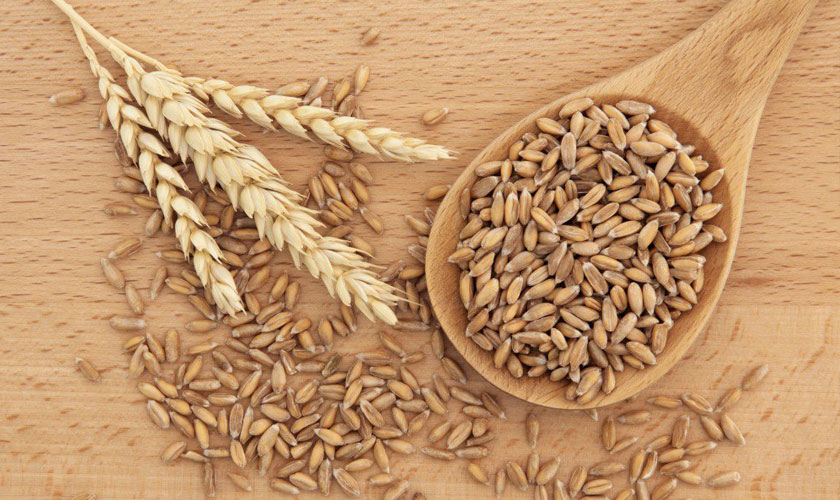Increase in subsidized wheat prices leads to fears of protests in Pakistan’s north

An alliance of social, political and religious groups in Pakistan’s Gilgit-Baltistan (GB) on Sunday warned of protest demonstrations in the remote, mountainous region over the government’s recent move to increase the price of subsidized wheat.
Gilgit-Baltistan has not officially been part of Pakistan, but forms part of the portion of disputed Kashmir that Pakistan controls. Both Islamabad and New Delhi claim all of Kashmir since their independence in 1947 and have fought two of their three wars over the territory.
Only 1 percent land in GB, which is Pakistan’s only land link to China and lies at the heart of the $65 billion China-Pakistan Economic Corridor (CPEC), has been used for agriculture, according to the United Nations Development Programme (UNDP) and the GB agriculture department. The rest of nearly 72,000 square kilometers of administrative territory consists of 52 percent rangelands, and four percent forests, while the remaining portion has mountains and barren land.
In the 1970s, former prime minister Zulfikar Ali Bhutto had introduced wheat subsidy for Gilgit-Baltistan because of the region’s high poverty index, lack of industry and insignificant agricultural land. But the regional government this week increased the price of wheat from Rs21 to Rs36 per kilogram, with the specified rate translating to Rs3,600 per 100kg bag of wheat.
The move has prompted a strong reaction from the Awami Action Committee (AAC), an alliance of regional, political and religious parties, as well as the civil society, social welfare organizations and rights bodies.
“We completely reject the government’s decision to increase the wheat prices. Gilgit-Baltistan is a disputed region and the onus is on the government to provide subsidies on 28 things (wheat, salt, sugar, petrol and others) due to its territorial dispute,” Najaf Ali, the AAC chairman for Baltistan, told Arab News on Sunday.
“The Awami Action Committee will be on roads with the public [against the decision]. Now we will not only fight for wheat, but we will also fight for all rights of Gilgit-Baltistan.”
Israruddin Israr, the Human Rights Commission of Pakistan’s (HRCP) coordinator for Gilgit-Baltistan, urged the regional government to revisit its decision, noting that the local populace was facing unemployment and a lack of basic necessities.
“Gilgit-Baltistan is a far-flung area. There is no wheat production and the road condition is also very poor. That’s why subsidy was given to transport wheat from Islamabad to GB because the transportation cost is very high,” Israr told Arab News.
“As a result of the decision taken by the GB government, people will certainly go toward protest. So, the government needs to reconsider its decision.”
GB has long been facing a shortage of wheat, while a surge in global prices resulted in an increase in wheat prices in Pakistan that has forced Islamabad to reduce the regional wheat quota to 1.2 million wheat bags from 1.7 million a year.
GB Chief Minister Gulber Khan said on Saturday they were being constantly asked by the federal government to increase the wheat prices.
“After taking the stakeholders into confidence, we decided to raise the price of wheat from Rs21 to Rs36 per kg,” he said at a press conference in Gilgit. “The wheat quota has also been increased and every member of the family will [now] get 7 kg of wheat instead of 4 kg.”
Islamabad would supply 75 percent Pakistani wheat and 25 percent Ukrainian wheat to the region, Khan added.
Speaking to Arab News, GB Food Minister Ghulam Muhammad said the regional government had tried to “minimize the burden” on the masses.
“There was a huge budget shortfall in GB after an increase in wheat prices in the country. The GB government was compelled to increase the prices,” he told Arab News over the phone.
“Initially, the [federal] government proposed to increase the wheat price from Rs2,100 to Rs 5,200 per 100kg bag. However, we set the wheat price per bag at Rs3,600 instead of Rs5,200.”
Read also
Wheat in Southern Brazil Impacted by Dry Weather and Frosts
Oilseed Industry. Leaders and Strategies in the Times of a Great Change
Black Sea & Danube Region: Oilseed and Vegoil Markets Within Ongoing Transfor...
Serbia. The drought will cause extremely high losses for farmers this year
2023/24 Safrinha Corn in Brazil 91% Harvested
Write to us
Our manager will contact you soon



